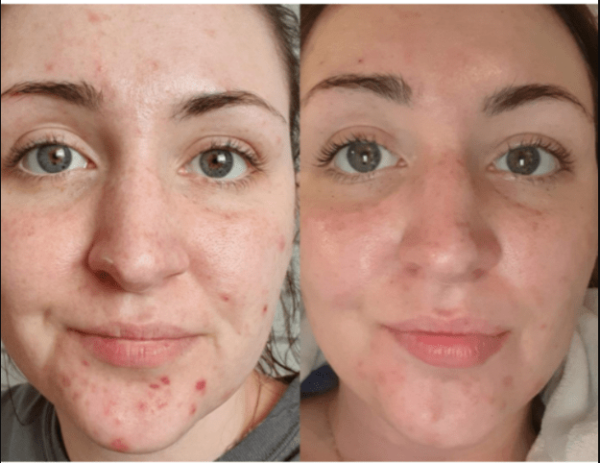Introduction to Sensitive Skin
Sensitive skin is a common concern that many people grapple with daily. It’s characterized by heightened reactivity to environmental factors and skincare products, often resulting in redness, irritation, and discomfort. Those with sensitive skin need to adopt a skincare routine that prioritizes gentleness and minimal irritation. In this comprehensive guide, we’ll explore the world of sensitive skin, offering insights into understanding your skin type, identifying the causes of sensitivity, and providing valuable health tips to create a gentle skincare routine.
Understanding Your Skin Type
Before embarking on your journey towards sensitive skin-friendly care, it’s crucial to understand your skin type. Sensitive skin can manifest in various ways, such as redness, itching, burning, or tightness. Some individuals have naturally sensitive skin, while others may develop it over time due to external factors. By identifying your skin type, you can tailor your skincare routine accordingly and select products designed for sensitive skin.
Causes of Sensitivity in Skin
Several factors can contribute to the development of sensitive skin. Common causes include:
- Genetics: A family history of sensitive skin can increase your likelihood of inheriting this skin type.
- Environmental Factors: Exposure to harsh weather conditions, pollution, and UV radiation can exacerbate skin sensitivity.
- Skincare Products: Using skincare products that contain harsh or irritating ingredients can trigger sensitivity.
- Hormonal Changes: Fluctuations in hormone levels, such as during pregnancy or menopause, can affect skin sensitivity.
- Medical Conditions: Conditions like rosacea, eczema, or allergies can lead to sensitive skin.
The Importance of Gentle Skincare
Sensitive skin requires a delicate touch, and gentle skincare practices are paramount. The goal is to soothe and nourish the skin without causing further irritation. Here’s why gentle skincare is crucial:
- Reduces Irritation: Harsh products can cause redness, itching, and inflammation in sensitive skin. Gentle skincare helps minimize these issues.
- Maintains Skin Barrier: A healthy skin barrier protects against external aggressors. Gentle products support its integrity.
- Prevents Premature Aging: Sensitive skin is more prone to premature aging. Gentle skincare can help keep your skin looking youthful.
- Enhances Comfort: A gentle routine ensures your skin feels comfortable and free from discomfort.
Tips for Creating a Gentle Skincare Routine
Creating a gentle skincare routine for sensitive skin involves making informed choices in product selection and daily habits. Let’s delve into some essential tips:
Choosing the Right Cleanser
- Opt for a fragrance-free, sulfate-free, and alcohol-free cleanser. These ingredients can be harsh on sensitive skin.
- Use lukewarm water, as hot water can strip the skin of its natural oils.
- Gently pat your face dry with a soft towel; avoid rubbing.
Moisturizing Effectively
- Choose a fragrance-free, hypoallergenic moisturizer with soothing ingredients like aloe vera or chamomile.
- Apply your moisturizer while your skin is slightly damp to lock in hydration.
Sun Protection for Sensitive Skin
- Wear a broad-spectrum sunscreen with at least SPF 30 daily, even on cloudy days.
- Look for a mineral sunscreen containing zinc oxide or titanium dioxide, as these are less likely to cause irritation.
Avoiding Irritating Ingredients
- Read product labels carefully and avoid skincare products containing fragrances, alcohol, parabens, and sulfates.
- Patch-test new products to check for any adverse reactions before applying them to your entire face.
Natural Remedies and DIY Health Tips for Sensitive Skin
Natural remedies can complement your skincare routine. However, it’s essential to proceed with caution, as some natural ingredients can also trigger sensitivity. Here are some natural options:
- Aloe Vera: Apply aloe vera gel to soothe irritated skin.
- Oatmeal: Create an oatmeal mask to alleviate redness and itching.
- Honey: Honey has antibacterial and soothing properties; use it as a mask or spot treatment.
Choosing the Right Products: A Key Step in Health Tips for Sensitive Skin
When shopping for skincare products, consider the following factors:
- Product Claims: Look for products specifically designed for sensitive skin. Claims like “hypoallergenic,” “fragrance-free,” and “dermatologist-tested” are good indicators.
- Ingredient Lists: Check the ingredient list for known irritants and avoid products that contain them.
- Patch-Testing: Before using a new product, perform a patch test on a small area of your skin to check for adverse reactions.
Consulting with a Dermatologist: Professional Health Tips for Sensitive Skin
If you’re struggling to manage your sensitive skin or if your condition worsens, consult a dermatologist. A dermatologist can provide tailored advice and treatment options, which may include prescription medications or procedures to address underlying issues.
In conclusion, sensitive skin can be managed effectively with a gentle skincare routine, proper product selection, and attention to individual triggers. By understanding your skin type, identifying the causes of sensitivity, and following the tips outlined in this guide, you can enjoy healthy and comfortable skin. Remember that consistency is key, and consulting with a dermatologist can provide additional personalized guidance on your journey to maintaining the health of your sensitive skin. By following these steps, you can ensure your skin looks and feels its best, free from discomfort and irritation.
